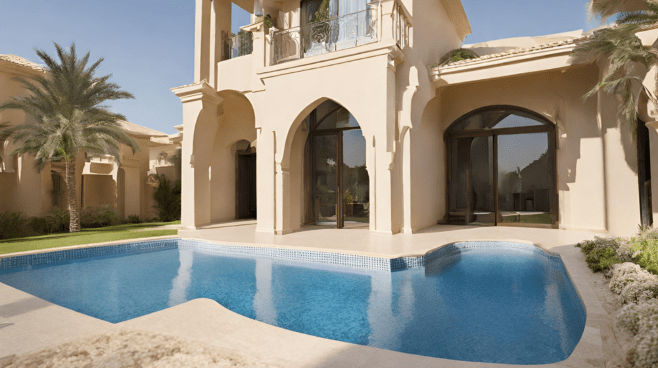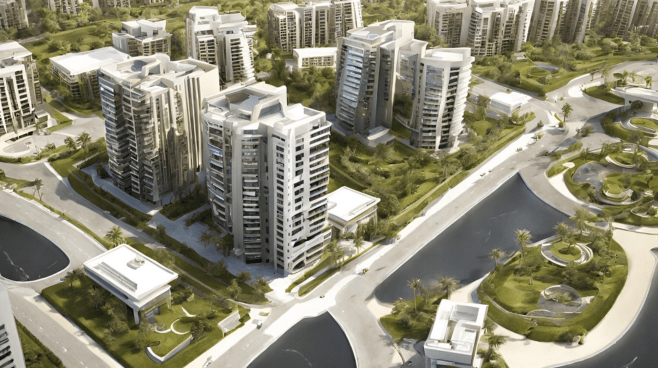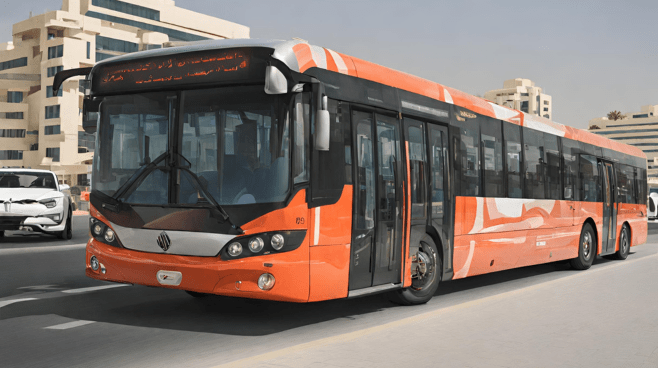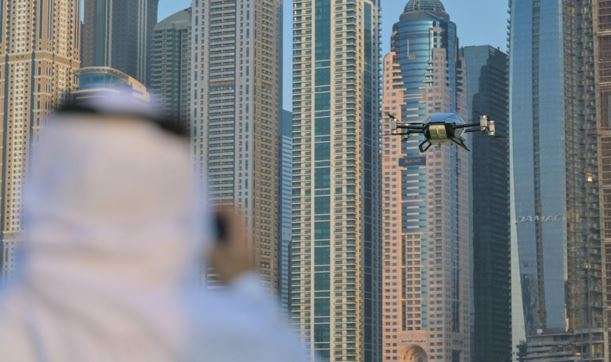The Cost of Living in the UAE-a blend of luxury and practicality. Understand expenses for a well-informed lifestyle decision. Explore the various subtopics within each section, gain valuable insights, and find answers to frequently asked questions to ensure a well-rounded understanding of the financial landscape in this vibrant Middle Eastern country.
Introduction
The UAE, with its impressive skyline, modern infrastructure, and cultural diversity, has emerged as an attractive destination for expats and residents alike. Boasting a strong economy and a high standard of living, the UAE offers a myriad of opportunities for those seeking employment or a change of scenery. However, before packing your bags, it is crucial to evaluate the cost of living to ensure financial stability and peace of mind.
Accommodation Expenses
Renting a Home

When considering accommodation in the UAE, it’s important to take into account the factors that influence the rental prices. The size, location, and amenities of the property play a significant role in determining the cost. Additionally, factors such as the age of the building, access to transportation, and proximity to schools and shopping centers can impact the rental rates.
To give you an idea of the rental market in the UAE, here are some popular residential areas and their estimated rent prices:
- Dubai Marina: A vibrant waterfront community with luxurious high-rise apartments, where rents can range from $2,500 to $5,000 per month for a one-bedroom apartment.
- Downtown Abu Dhabi: Offering a mix of residential and commercial properties, the average rent for a one-bedroom apartment varies from $1,800 to $3,000 per month.
- Sharjah: Located just a short distance from Dubai, Sharjah offers more affordable options, with one-bedroom apartments ranging from $1,000 to $2,000 per month.
It’s important to be aware of hidden costs when renting a home in the UAE. These can include agent fees, typically amounting to 5% of the annual rent, security deposits, usually equivalent to one or two months’ rent, and DEWA (Dubai Electricity and Water Authority) connection charges, which vary depending on the size of the property.
Purchasing a Property

While renting is a popular choice for many expats and residents, others may prefer to invest in their own property. Buying a home in the UAE has its advantages, such as the potential for long-term financial stability and the ability to personalize your living space. However, it’s essential to carefully consider the following factors:
- Pros and Cons of Buying a Home: Owning a property allows you to build equity and potentially benefit from capital appreciation. However, it also comes with responsibilities, such as maintenance and homeowner association charges.
- Considerations for Financing a Property: When purchasing a home, you have the option to pay in cash or explore financing options. It is advisable to consult with a financial advisor to determine the best approach based on your financial situation and long-term goals.
- Additional Costs: In addition to the purchase price, there are additional costs associated with owning a property. These can include maintenance fees, which cover common area expenses, and homeowner association charges, which contribute to community facilities and services.
Transportation Costs
Car Ownership

While the UAE boasts a well-developed public transport system, many residents and expats prefer the convenience of owning a car. Here are the key aspects to consider when evaluating the cost of car ownership in the UAE:
- Purchasing a Car: The cost of a car can vary widely depending on the make, model, and condition. It’s important to consider factors such as fuel efficiency, reliability, and the availability of spare parts. Additionally, insurance and registration fees need to be factored into the overall cost.
- Vehicle Registration and Insurance Expenses: Registering a car in the UAE involves one-time registration fees and an annual renewal process. The insurance costs can also vary depending on the type of coverage and the driver’s history.
- Fuel, Tolls, and Parking Charges: Fuel prices in the UAE are relatively low compared to many other countries. However, tolls and parking charges can add up, especially in popular areas and during peak hours.
Public Transport

For those who prefer not to own a car, the UAE offers an efficient and affordable public transport system. Here’s what you need to know about the cost of using public transport:
- Metro, Bus, and Tram Fares: The UAE has a well-connected metro and bus network that covers major areas. Fares are reasonable, with prices depending on the distance traveled. The trams in Dubai are a convenient mode of transportation, especially for residents and tourists in the tram-accessible areas.
- Navigating the Public Transport Network: Understanding the routes, timings, and ticketing systems of the public transport network is essential for a smooth commuting experience. Ensure you have a Nol card, a rechargeable smart card, to pay for your fares.
- Cost of Taxis and Ride-Hailing Services: Taxis are readily available in the UAE and are metered. Ride-hailing services such as Uber and Careem provide an additional convenient and sometimes cheaper option for transportation.
Healthcare and Education Expenses
Healthcare Costs

The UAE is known for its high-quality healthcare system, which attracts both residents and medical tourists. Here’s what you need to know about healthcare costs:
- Overview of the UAE Healthcare System: The UAE has a mix of public and private healthcare facilities. Public hospitals offer subsidized services to citizens and residents, while private hospitals provide a wider range of services and amenities.
- Healthcare Insurance Options and Costs: Healthcare insurance is mandatory for residents in the UAE. The cost of insurance depends on various factors, including age, medical history, and the extent of coverage desired.
- Calculating Out-of-Pocket Expenses: While insurance covers a significant portion of healthcare costs, there are still out-of-pocket expenses to consider. These can include consultation fees, medications, and procedures not covered by insurance.
Education Expenses

For expats with children, education expenses are a significant consideration. Here’s what you need to know:
- School Fees for Expats and Locals: Tuition fees for schools in the UAE can vary significantly depending on the curriculum, reputation, and amenities offered. International schools tend to have higher fees compared to local schools.
- Choosing Between Public and Private Schools: The UAE offers both public and private schools. Public schools offer education at subsidized rates for UAE nationals, while private schools cater to a diverse range of nationalities and curricula.
- Additional Costs: In addition to tuition fees, there are additional expenses associated with education, including uniforms, books, transportation, and extracurricular activities.
Daily Living Expenses
Groceries and Essential Items

When it comes to daily living expenses in the UAE, the cost of groceries and essential items is an important consideration. Here are some key points to note:
- Average Costs of Basic Food Items: Groceries in the UAE can vary in price, depending on the store and location. Basic food items such as rice, bread, and vegetables are generally affordable. However, imported and specialty items may be more expensive.
- Pricing Differences: Local Markets vs. Western Supermarkets: Local markets, known as souks, offer fresh produce and spices at competitive prices. Western supermarkets, on the other hand, provide a wider range of international products but may have slightly higher prices.
- Miscellaneous Household Expenses: In addition to groceries, other daily living expenses include cleaning services, utilities, and internet charges. Prices for these services can vary depending on the size and location of the property.
Dining Out and Entertainment

The UAE offers a vibrant dining and entertainment scene, catering to a range of preferences and budgets. Here’s what you need to know:
- Cost of Eating at Restaurants: Dining out in the UAE can range from budget-friendly options to high-end establishments. The price varies depending on the cuisine, location, and the level of luxury.
- Affordable Cuisine Alternatives: For those on a budget, the UAE also offers affordable cuisine alternatives such as street food markets, food courts, and local cafes. These options provide a taste of local flavors without breaking the bank.
- Entertainment Expenses: The UAE is known for its world-class entertainment, including movie theaters, theme parks, and cultural events. Prices for these activities can vary, so it’s important to plan and budget accordingly.
Summary and FAQs
Summary of Key Findings
- The cost of living in the UAE varies depending on factors such as accommodation, transportation, healthcare, education, and daily expenses.
- Renting a home in popular areas can be expensive, but there are also more affordable options available.
- Owning a car comes with additional costs such as registration, insurance, fuel, and parking charges.
- The UAE offers a well-developed public transport system, which provides an affordable alternative to owning a car.
- Healthcare costs in the UAE depend on insurance coverage and out-of-pocket expenses.
- Education expenses vary depending on the type of school and additional costs such as uniforms and extracurricular activities.
- Daily living expenses include groceries, household services, and dining out, with a range of options for different budgets.
Frequently Asked Questions
- How can I reduce my accommodation expenses in the UAE?
Use price comparison websites, negotiate rental prices, consider sharing accommodation, or explore more affordable areas.
- Are healthcare services affordable and of good quality in the UAE?
Healthcare services in the UAE are of high quality. However, costs can vary, so having comprehensive health insurance is important.
- How do I decide between public and private schools for my children?
Consider factors such as curriculum, quality of education, extracurricular activities, and your budget when choosing between public and private schools.
- What are some effective ways to save on daily living expenses?
Plan your meals, compare prices before purchasing groceries, use public transport instead of owning a car, and take advantage of affordable entertainment options.
- How does the cost of living in the UAE compare to other countries?
The cost of living in the UAE can be considered high, especially in areas such as Dubai and Abu Dhabi. However, the UAE also offers a range of options to accommodate different budgets. With this comprehensive guide, you now have a thorough understanding of the cost of living in the UAE. By considering the various factors and exploring different options, you can make informed financial decisions and ensure a comfortable and enjoyable life in this vibrant Middle Eastern country.



